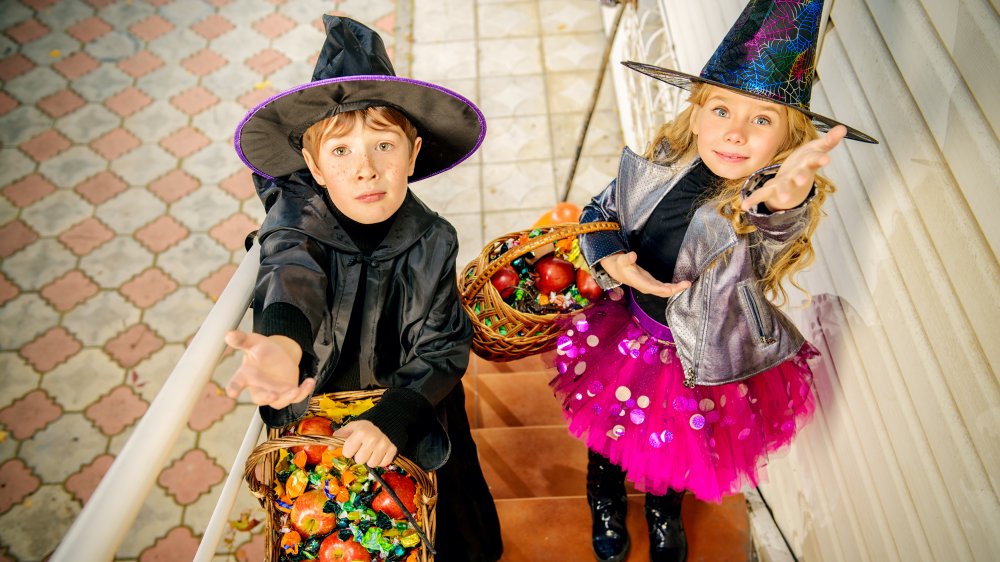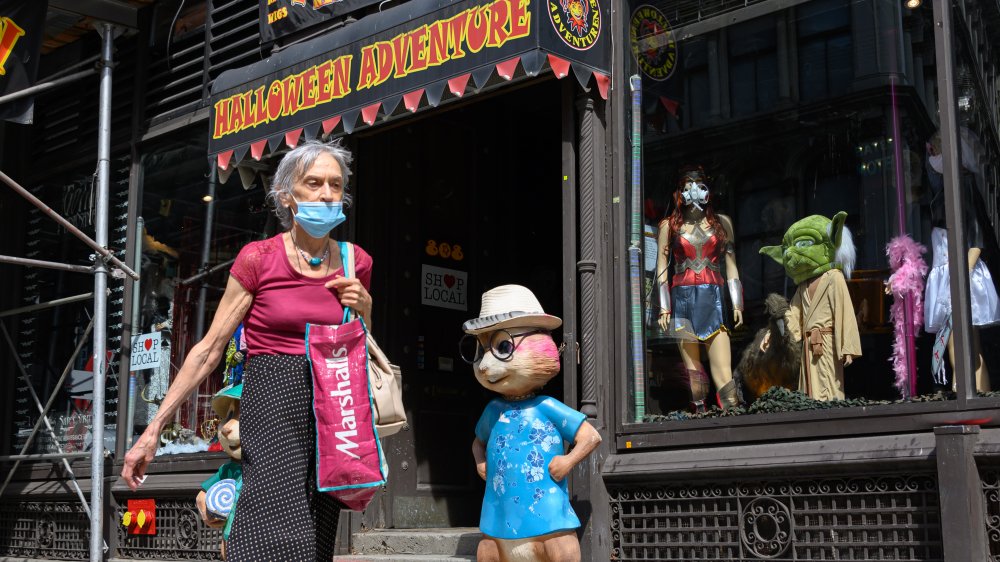Is Trick-Or-Treating Really Canceled This Year?
Families have given up so much this year already. Youth sports leagues shut down (via Today). The Class of 2020 missed out on its graduation ceremonies (via ABC News). And the Halloween ritual of going door-to-door for candy seems especially risky in the year of the COVID-19 pandemic. But canceling it feels like the final straw in a year of disappointments. Say it isn't so: Will trick-or-treating really be canceled this year?
The answer will depend on where you live. No reports of an outright ban on trick-or-treating have surfaced yet — at least not any that stuck. Los Angeles County initially banned trick-or-treating, due to worries over mass-scale violations of social-distancing requirements. Within 24 hours, however, the county backed off, saying only that trick-or-treating was "not recommended" (via the Los Angeles Times).
"Even a pandemic can't cancel Halloween," L.A. County Supervisor Janice Hahn said. "In fact, it's the only day of the year we were expected to wear masks before this crisis started."
Places like Salem, Massachusetts and Sleepy Hollow, New York are really scared about Halloween being curtailed or outright canceled. Their economies depend largely on tourists who are drawn every October to these creepy places of legend. "We'll be kind of sitting at home, you know, frightened by our own panic attack — the real creeping, insidious virus that never seems to go away," said Jonathan Kruk, who recites "The Legend of Sleepy Hollow" every year in the Hudson Valley village (via The New York Times).
Some advice on how to trick-or-treat safely
Grocery store displays are already loaded with Halloween candy — the holiday generates more than $8 billion a year in costume, candy, and spooky-decoration sales (via the National Retail Federation). With so much at stake, it seems safe to say that trick-or-treating will happen, at least in some places. But how to do it safely?
Emily Oster, an economics professor and COVID-19 expert, wrote in The Washington Post that trick-or-treating has some things working in its favor. Kids will certainly fail badly at social distancing in their eagerness to grab for Halloween candy. Then again, young children may not spread the virus very easily, they'll be outside, and many of them will be wearing masks. Trick-or-treating in suburban neighborhoods can get a slight adjustment: Kit Kat bars, packages of candy corn and the like can be spaced on the porch steps or the walkway in front of the house, rather than being distributed from one big bowl. Residents in apartment buildings, meanwhile, can move trick-or-treating to a nearby park.
Good Morning America came up with a list of ways to have a safer trick-or-treating experience. In addition to finding creative, socially-distanced methods to hand out candy, GMA suggests that neighbors make a plan, that all kids' costumes include masks, and that everyone gets flu shots before Halloween. They even suggest checking the rate of positive COVID-19 tests in your community before hosting trick-or-treating or sending your children into the streets.

